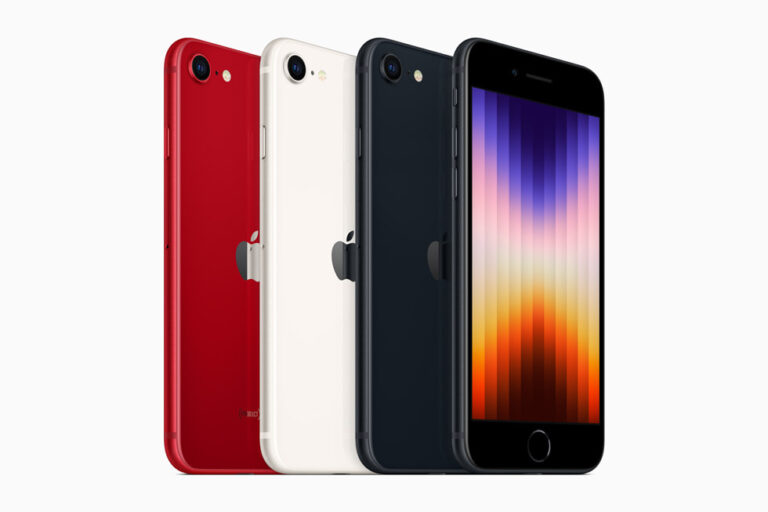
Voice over Internet Protocol (VoIP) systems have become essential for businesses looking to modernize their communication systems. These services transform traditional phone calls into digital signals that travel over the internet, offering flexibility and cost savings compared to old-fashioned landlines.
Finding the right VoIP provider can save your business significant money while providing advanced features like video conferencing, automated attendants, and mobile integration. Popular options like RingCentral and Intermedia Unite consistently rank among top choices for their reliability and feature sets. Whether you run a small startup or a growing enterprise, the modern VoIP marketplace offers solutions tailored to your specific communication needs.
1: Zoom Phone
Zoom Phone is a cloud VoIP phone service that extends Zoom’s communication platform beyond video meetings. You get a complete business phone solution with features designed for modern workplaces.
The system offers unlimited domestic calls, SMS messaging, and voicemail transcription. You can also record important calls for reference later. These features make it easier to stay connected with clients and team members.
One advantage of Zoom Phone is its simplicity. The platform has a low learning curve, making it perfect if you’re new to VoIP systems. You won’t need extensive training to get your team up and running.
Zoom Phone works with many popular desk phone brands. You can choose from compatible phones that fit your budget and needs. Many users recommend Poly VVX or Yealink devices for the best experience.
The service integrates seamlessly with other business apps you might already use. This connectivity helps streamline your workflows and communication processes.
Zoom offers high-quality hardware options including desk phones, conference phones, and headsets. You can free yourself from outdated legacy phone systems while maintaining professional call quality.
If cost is a concern, you’ll find Zoom Phone relatively affordable compared to traditional business phone systems. The value becomes even better if you’re already using other Zoom services.
2: RingCentral
RingCentral is one of the leading VoIP service providers for businesses in 2024. If you’re looking to move away from expensive traditional phone systems, RingCentral RingEX could be the perfect VoIP solution for your needs.
RingCentral offers a wide variety of VoIP phones and devices to complement their service. You can choose from desktop phones, cordless options, receptionist models, conference phones, and headsets depending on your specific requirements.
When selecting phones for your team, RingCentral provides a helpful side-by-side comparison tool for their compatible devices. This makes it easier to evaluate different brands and models before making your decision.
For those seeking top-tier options, the Poly Edge E550 stands out as an exceptionally versatile VoIP phone compatible with RingCentral. It features integrated Bluetooth and Wi-Fi capabilities with a modern, stylish design.
RingCentral is trusted by over 400,000 brands, making it a reliable choice for businesses of all sizes. Their platform combines voice capabilities with other communication tools to create a unified system.
You can explore their top VoIP phone recommendations for 2024 to find the right fit for your team’s communication needs. These carefully selected options can help streamline your business communications effectively.
3: Dialpad
Dialpad offers an AI-powered VoIP phone system that combines calling, video meetings, and messaging in one platform. Their solution is designed to improve business communications while providing flexibility for your team.
You’ll find that Dialpad was rated the #1 VoIP system on G2, showing strong user satisfaction. The platform allows you to make and receive calls easily through their cloud-based service.
With Dialpad, you get robust VoIP service that works across devices, letting your team stay connected whether they’re in the office or working remotely. This flexibility makes it ideal for modern workplaces.
The cloud VoIP phone service from Dialpad lets you handle not just calls but also SMS messaging and meeting setup. Everything works through a single application for simplicity.
For hardware options, Dialpad supports various desk phones and devices from manufacturers like Poly, Yealink, and Jabra. They even offer financing options to help manage your investment.
Small businesses can particularly benefit from Dialpad’s features designed for their needs. The platform scales with your business, making it suitable whether you have a handful of employees or a growing operation.
Dialpad’s interface is known for being user-friendly, reducing the learning curve for your team. This means you can implement the system with minimal disruption to your operations.
4: Aircall
Aircall stands out as one of the most popular business VoIP services today. It offers reliable uptime and crystal-clear call quality that businesses need for professional communications.
When choosing a phone system, you might want to test it before committing. Aircall offers a free trial period so you can explore its features and determine if it’s right for your business needs.
The platform provides advanced features that go beyond basic calling. You’ll get access to queue call back, smart routing, call analytics, and call monitoring, giving you powerful tools to manage your business communications effectively.
Aircall is designed to be flexible for different business types. The system is easily adaptable and customizable to fit your specific requirements, whether you’re a small startup or a growing enterprise.
Cost savings is another benefit you’ll appreciate with Aircall. Like other VoIP solutions, it helps reduce your call costs while expanding your telephony capabilities.
Setting up Aircall is straightforward. You won’t need complex hardware installations or technical expertise to get started. The system works through the internet, making implementation simple across your organization.
Customer support teams particularly benefit from Aircall’s features. The platform integrates with many CRM systems, helping your team track conversations and provide better service to your customers.
5: Intermedia Unite
Intermedia Unite stands out as a comprehensive VoIP solution for businesses seeking reliable communication tools. This service combines phone systems, video conferencing and other collaborative features into one unified platform.
You’ll appreciate Intermedia Unite’s competitive pricing and excellent call routing capabilities. These features make it a formidable VoIP option compared to other services in the market.
The system offers impressive reliability with 99.999% uptime. This means your business communications stay active when you need them most, helping you maintain consistent contact with clients and team members.
For remote teams, Intermedia Unite provides flexibility that keeps everyone connected. Your staff can work from virtually anywhere while maintaining professional communication standards.
The advanced PBX phone system features give you greater control over your business communications. These tools allow you to customize your setup based on your specific organizational needs.
Customer service and sales teams benefit particularly from Intermedia’s capabilities. The platform enables your agents to work internationally while maintaining seamless communication with clients.
When comparing VoIP solutions, Intermedia Unite consistently ranks among the top options for businesses of various sizes. You get enterprise-level features without the enterprise-level complexity or cost.
The platform’s unified approach means you spend less time switching between different communication tools. This streamlined experience can boost your team’s productivity and response times.
6: Nextiva
Nextiva offers a top-rated VoIP phone service trusted by over 100,000 brands across the country. When you choose Nextiva, you get unlimited nationwide calls, text messaging, conferencing, and team chat starting at just $18.95 per month.
For office setups, Nextiva provides high-quality VoIP desk phones with HD voice functionality from trusted manufacturers like Poly, Panasonic, and Cisco. These desk phones pair perfectly with Nextiva’s service to create a reliable communication solution for your business.
If you need mobility around your workplace, cordless VoIP phones from Nextiva deliver exceptional reliability. You’ll experience HD voice quality, fewer dropped calls, and reduced line noise compared to traditional phone systems.
Industry experts and thousands of verified reviews have consistently ranked Nextiva as the best VoIP phone system for businesses. Even U.S. News has given Nextiva top ratings in the VoIP category.
For small businesses specifically, the Nextiva X-835 and Poly Edge E220 models offer an excellent balance of features and affordability. These options provide the professional communication tools you need without breaking your budget.
With Nextiva, you’re not just getting phone service – you’re getting what they call their “Amazing Service,” which has helped them build a user base of over a million people.
7: 8×8
8×8 offers a complete VoIP phone system for businesses of all sizes. Their platform combines contact center capabilities with unified communications, making it a strong choice if you need both features.
You’ll find that 8×8 provides VoIP phones, headsets, and accessories to support your business communication needs. This gives you flexibility when choosing hardware for your team.
One standout feature of 8×8 is its conferencing capability. Their system supports up to 500 participants for audio and video conferencing, which exceeds what many competitors like Dialpad and Nextiva offer.
The 8×8 Platform connects your teams and customers in one place. This integration helps you gain better insights from your communication data and improve your business operations.
While 8×8 provides excellent features, it may not be the most budget-friendly option for very small businesses. Some users consider it more suitable for larger companies due to its pricing and feature complexity.
When comparing 8×8 to alternatives, consider your specific needs. If you value robust conferencing capabilities and need a system that can scale with your business, 8×8 deserves your consideration.
The 8×8 Platform for CX brings together your business communications in one interface, which can streamline your workflows and improve efficiency across departments.
8: OpenPhone
OpenPhone is a VoIP phone system designed specifically for small businesses. It offers a modern solution that helps you manage business calls efficiently without complicated setup processes.
You can get started with OpenPhone quickly, with plans beginning at just $15 per user per month. This makes it an affordable option for small teams and growing companies.
The system comes with all essential VoIP features you would expect. These include unlimited calls to the US and Canada, caller ID, call routing, forwarding, and transfers.
Users particularly appreciate OpenPhone’s ease of use. According to reviews on Reddit, it stands out as a robust phone system that won’t break the bank for small businesses.
OpenPhone is frequently recognized as one of the best VoIP service providers in 2025. Its intuitive interface makes it simple to manage your business communications from anywhere.
If you need to make international calls, OpenPhone has you covered. It ranks as one of the top VoIP options for international calling in 2025, making it perfect for businesses with global connections.
You’ll find the setup process takes just minutes rather than days. This means you can quickly transition from traditional phone systems to a more flexible VoIP solution without disrupting your business operations.
9: Google Voice
Google Voice offers a versatile phone solution that works well for both individuals and businesses. You can use it with various devices to make and receive calls over the internet.
For business users, Google Voice is available as part of Google Workspace. It provides a professional phone system with features like call forwarding, voicemail transcription, and spam filtering.
The quality of your experience depends partly on the phone you choose. The Poly VVX 450 has excellent sound quality, especially its speakerphone feature. It’s a great option for office settings where call clarity matters.
If you’re looking for something more advanced, the Poly Edge E550 offers integrated Bluetooth and Wi-Fi connectivity. This model provides flexibility in how you connect and use the system.
The Obihai OBi1032PA supports up to 12 lines and works well with Google Voice. It’s compatible with both Google Voice and SIP-based services, giving you options for how you configure your system.
Your choice between the free consumer version or the paid Google Workspace Voice will determine some of your hardware options. The business version offers more features and better integration with other Google tools you might already use.
10: Yealink T54W IP Phone
The Yealink T54W is a prime business phone designed for busy professionals and managers with moderate call loads. It offers the perfect balance of features and usability for your office communication needs.
This model features an adjustable 4.3-inch color LCD display that you can position at your preferred viewing angle. The bright screen is easy to read, making it simple to manage your calls and contacts.
You’ll appreciate the flexibility of the T54W with its built-in Bluetooth and Wi-Fi capabilities. The phone supports 16 VoIP accounts, giving you plenty of options for managing multiple lines or departments.
Connectivity is never an issue with this device. With the BT51 accessory, you can connect the T54W to your PC via Bluetooth for use with popular UC platform calls like Teams, Zoom, and RingCentral.
The phone is well-built and easy to set up. You’ll find the intuitive interface helps streamline your daily communications without a steep learning curve.
For power options, the T54W supports PoE (Power over Ethernet), reducing cable clutter on your desk. This Linux-based mid-level IP phone also features 10 line keys for quick access to your most-used functions.
Understanding VoIP Technology
VoIP technology transforms how businesses handle phone communications by routing calls through the internet instead of traditional phone lines. This digital approach offers both technical advantages and practical benefits for everyday users.
How VoIP Works
VoIP stands for Voice over Internet Protocol, a technology that converts your voice into digital signals that travel over the internet. Unlike traditional phones that use copper wires, VoIP phones use your existing internet connection.
When you make a call, your voice is broken down into small digital packets. These packets travel through the internet to reach the recipient, where they’re reassembled into sound.
The process requires several components:
- IP phones or regular phones with adapters
- Internet connection (broadband recommended)
- VoIP service provider who manages your calling services
Your voice quality depends largely on your internet speed and stability. Most modern broadband connections provide sufficient bandwidth for crystal-clear calls.
Benefits of Using VoIP for Phone Calls
Cost Savings: VoIP phone systems significantly reduce communication expenses. Long-distance and international calls cost much less than traditional phone services. Many providers offer unlimited calling plans at flat monthly rates.
Advanced Features: VoIP comes with business-friendly features like:
- Auto-attendants
- Call forwarding
- Voicemail-to-email
- Conference calling
- Video meetings
Flexibility: You can use VoIP anywhere with internet access. Take your office number home or abroad by simply connecting to Wi-Fi.
Scalability: Adding new lines doesn’t require physical installation. You can quickly scale up or down as your business needs change, often with just a few clicks in your account dashboard.
Choosing the Best Phone for VoIP
Selecting the right VoIP phone is crucial for clear communications and seamless integration with your existing systems. Your choice will impact both call quality and available features for your daily operations.
Compatibility Considerations
Before purchasing a VoIP phone, check if it works with your current service provider. Many businesses prefer Polycom or Yealink phones for their reliability and compatibility with various platforms.
Look for phones that support the specific protocols your VoIP service uses, such as SIP (Session Initiation Protocol). This ensures your hardware will connect properly to your chosen service.
You’ll also want to consider future scalability. Ask yourself:
- Will this phone work if you change providers?
- Does it support necessary codecs for quality calls?
- Can it handle any special features your business requires?
Some providers may only work with certain phone models, so verify compatibility before making your final decision.
Hardware Requirements
The physical specifications of your VoIP phone will determine its functionality in your workspace. For knowledge workers, the Poly VVX 250 offers four lines and high-quality audio suitable for modern business environments.
Consider these key hardware features:
- Display quality: Color screens make navigation easier
- Number of lines: Determine how many simultaneous calls you need
- Audio quality: HD voice capabilities reduce fatigue during long calls
- Power options: PoE (Power over Ethernet) eliminates extra cables
For mobile workers, you might need WiFi VoIP phones that allow movement throughout your workspace. Conference rooms benefit from specialized conference phones with 360-degree microphones.
Your network infrastructure must also support VoIP traffic. Ensure you have sufficient bandwidth and QoS (Quality of Service) settings to prioritize voice data.
Frequently Asked Questions
VoIP systems offer significant benefits for businesses and individuals, but choosing the right service requires careful consideration of several key factors. Let’s address some common questions about VoIP phone systems.
What is the leading VoIP phone system for small businesses?
RingCentral consistently ranks as the top VoIP solution for small businesses due to its comprehensive feature set and reliability. It offers advanced capabilities that small businesses need, including video conferencing, team messaging, and robust mobile apps.
Zoom Phone has also gained significant traction, especially for businesses already using Zoom for video conferencing. Its seamless integration with the Zoom ecosystem makes it an attractive option.
Dialpad stands out for its AI-powered features, providing real-time transcription and analytics that can help small businesses improve their communication efficiency.
Which VoIP providers offer the most cost-effective service for personal use?
For personal use, several providers offer excellent value. You can save up to 90% on your monthly phone bill compared to traditional landline services.
Intermedia Unite offers competitive pricing with unlimited calling and messaging included in their basic plans. Their pricing structure is transparent with minimal hidden fees.
RingCentral’s residential plans provide good value with features like call forwarding, voicemail-to-email, and caller ID at reasonable monthly rates.
How does one choose the best VoIP service among the top 10 providers?
Start by assessing your specific needs. Consider factors like team size, call volume, and required features.
Ask about contract terms and flexibility. Some providers require long-term commitments while others offer month-to-month options.
Evaluate support quality and availability. The best providers offer 24/7 support through multiple channels including phone, chat, and email.
Test call quality before committing. Many providers offer free trials that allow you to experience their service quality firsthand.
Can you list the primary disadvantages of using a VoIP phone system?
VoIP relies on internet connectivity, making it vulnerable to outages. When your internet goes down, so does your phone service unless you have backup solutions in place.
Call quality can be affected by bandwidth limitations. If your internet connection is slow or inconsistent, you may experience dropped calls or poor audio quality.
Security concerns exist with VoIP systems. Without proper precautions, your calls could potentially be intercepted or your system could be vulnerable to hacking.
Power outages can disable VoIP systems unless you have battery backups or alternative power sources in place.
What factors should be considered when selecting a VoIP phone for home or office use?
Consider compatibility with your chosen service provider. Ask if you need specific phones or if your existing hardware will work.
Audio quality features like HD voice and noise cancellation significantly impact call clarity. Premium phones from manufacturers like Polycom and Cisco typically offer superior audio.
Screen size and interface matter for daily usability. Larger screens and intuitive menus make it easier to access features and manage calls.
Wireless capabilities provide flexibility in office layout. DECT or WiFi-enabled phones allow you to move around without being tethered to a desk.
What should I look for in a VoIP provider to ensure reliable and high-quality service?
Uptime guarantees and service level agreements (SLAs) indicate a provider’s confidence in their reliability. Look for providers offering 99.9% or higher uptime guarantees.
Call quality depends on the provider’s network infrastructure. Established providers like RingCentral and Aircall have invested heavily in robust networks to ensure clear calls.
Redundancy and failover systems prevent service disruptions. Ask potential providers about their backup systems and disaster recovery protocols.
Geographic coverage matters if you make international calls. Some providers offer better rates and quality for specific regions, so choose one that performs well in areas you frequently call.






